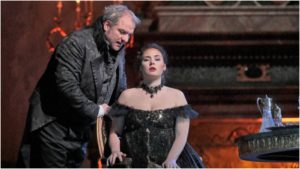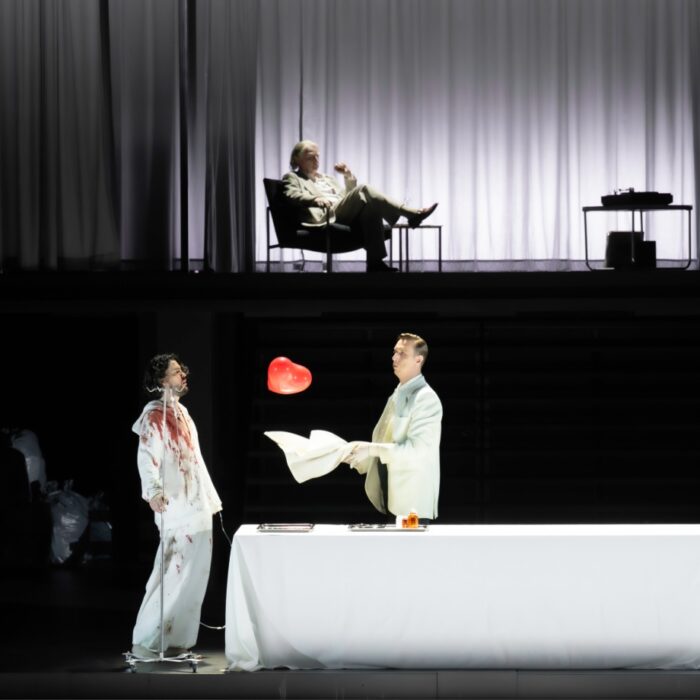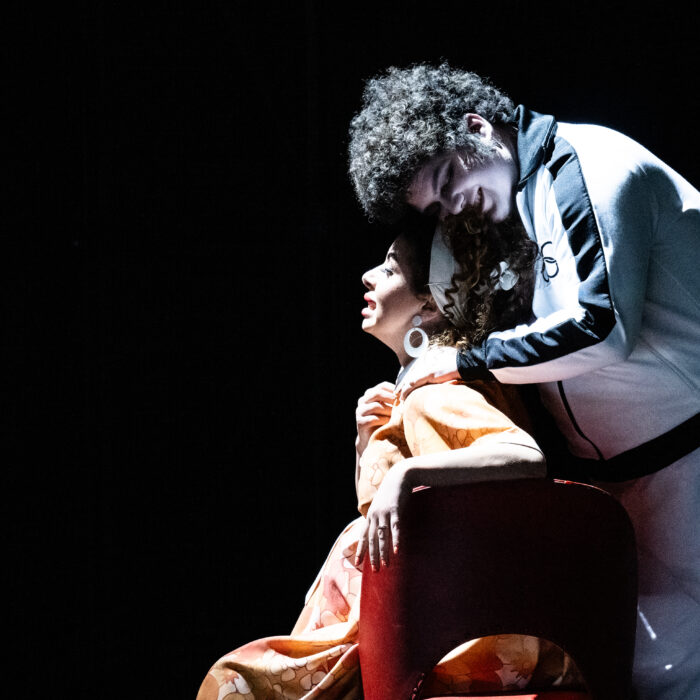
Editorial: Is It Time To Change How Opera Reviews Are Done? And Is It Possible?
By David SalazarBack on Jan. 4, I published this piece of criticism on this website.
Entitled “Metropolitan Opera 2017-18 Review – Tosca: Yoncheva, Grigolo, Villaume Not Ready for Primetime,” it was clearly no ringing endorsement for the major performers of this hotly anticipated Met Opera production. In fact, it was scathing takedown in some ways of everyone involved, done in the greatest detail I could muster to support my perspective.
After watching the final performance of that run on Jan. 27, 2018, I can no longer stand behind that article.
Let me backtrack a second.
My Re-evaluation
I never wrote that review with terrible intentions of destroying or hurting anyone. I simply went to a performance, and as has always been my policy, I wrote about how it made me feel, always asking why certain things affected me the way they did. Then I articulated them the best way I could.
That article suited that performance the best it could.
But upon watching the final performance of the run, about half a dozen performances after the one I saw, I started to muse a bit on the nature of reviews themselves, especially in this art form.
The reason I can’t stand behind my earlier review is that the performance I witnessed on the 27th was completely different. And by accounts, it was a culmination of improvements brought about over the last several weeks. It emphasized something crucial about opera – it is a work in progress always working on itself. To look at it for one performance is an injustice to its essence.
That obviously led to other questions – mainly what should a review be? What is it? And a consideration of the reasons for why it can or can’t evolve beyond what it currently is.
What is a Review in the Opera World?
So let’s start with what it currently is. The truth to this question is that a review operates on a number of fundamental levels.
For opera companies, it has the potential to be a marketing tool. A good review allows a company to use its word for promotional purposes. Why? Because a critic is an arbiter of taste and culture. People turn to a critic with the assumption that this person is an expert on the particular item at hand and hope to trust their judgment so that they can decide whether to invest their money and more importantly, time in a particular performance.
But a review can be something far deeper – it can be a piece of recorded history, an analysis of an event that allows the audience a deeper understanding of the motives and ideas behind a particular performance. Imagine 10 years down the line returning to my “Tosca” review from Jan. 4. The reader might reference the HD performance that will live on, but there is no recorded version of the Jan. 3 performance, just the reviews. In the case of my review, it is aimed at painting a picture that the reader can interact with and better understand. That is what a review should aim to do. But it often doesn’t.
Taking this point further, if a review can give a reader a total experience of a performance, then why shouldn’t it do so for the totality of the artistic journey. Why should my review be limited to the single performance instead of being a conglomeration of the entire run? A review at the end of the run, with perspective on the evolution of a project, presents far more opportunity for true discussion with the process and a better understanding of the intention of the artists.
In my review, I blasted Yoncheva’s acting abilities quite potently. But on Saturday, she was a completely different artist. Her acting was incredibly poignant. Her interactions with Zeljko Lucic were violent. He groped her, his look was menacing. In light of today’s themes of #MeToo and #TimesUp, the production resonated in their conflict. You could feel that she wanted to take him down at so many points and just felt overpowered. That rage built and built until finally she makes the decision to grab the knife and stab him. It allowed for emotional payoff and I even overlooked the clumsy runaround the table because I was relieved that she finally found a way to throw aside the anger building inside her. It was cathartic. It also made the third act more tragic.
Ditto for Lucic who was potent, violent, and yet elegant. And Emmanuel Villaume soared with the music, giving the Met orchestra another gear. I wrote this back on Jan. 5: “ Just look at the final moments of Act two, the repeated chords in low, somber tones suddenly erupting with frenetic percussion. It’s meant to shock us out of the calm that has dominated the music for the last several minutes. But in Villaume’s hands, we barely feel that subito fortissimo. It’s almost non-existent. And so the act ends without the chill of impending doom.”
This time around, the fortissimo made me jump in my seat and Yoncheva’s reaction to the sound only added to it.
Imagine I had written that review in the context of having seen more performances and had a chance to analyze the evolution. That would have led to a number of more unique questions about the process of an opera singer and his or her evolution in a role. That would be a far more interesting article for posterity to look at.
An article like that would also have allowed me to see the things that remained static in a production, such as Vittorio Grigolo’s performance, which remained the same as it had a few weeks back. No doubt a charismatic performer, Grigolo still could not find a way to be in time with Villaume in “Qual occhio al mondo” or “E lucevan le stelle” in this performance, and I had already witnessed him struggle with it throughout an orchestral rehearsal, the final dress rehearsal, the second performance, and the final performance. It is easier to draw conclusions about a performer’s overall interpretation of a piece within this context than in a review of a single show.
What Most Reviews Truly Look Like
I argue for this concept because at the end of the day, critics aren’t really providing constructive criticism that artists are going to take in and use. Here is a passage from The New York Times’ recent review of “L’Elisir d’Amore.” The NY Times is arguably the most reputable newspaper in the universe (regardless of what anyone says) and as such, they are gatekeepers of everything. People respect the brand and take them seriously. But one would hardly derive that their opinion is to provide constructive criticism that will improve any show when they write the following about a performer’s work: “Ildebrando D’Arcangelo was bluff and entertaining as the traveling snake-oil salesman Dulcamara, Davide Luciano proved suitably overbearing as Belcore, and Ashley Emerson was a lovely Giannetta.” What could an artist like Luciano gain from knowing he was suitably overbearing? Why suitably? How could he be more than suitable? How could he be more than “suitably overbearing?” What else about his performance resonated, didn’t resonate, and why?
I’m not trying to pick on the NY Times or the writer, James. R. Oestreich, because at the end of the day, most reviews these days look exactly like that (not all of them, but most of them are). One sentence per singer with one or two adjectives and we move along. Reviews like this aren’t really critiquing the artists so much as they are placing judgment on their performances. To be fair, critics these days are taught to write this way for a number of reasons: deadlines, conciseness (though the Internet offers endless space), etc. It is in essence, part of the culture of writing reviews in general.
Imagine how different this review would have been if Oestreich had seen the full run and had more to draw from? It probably reads with greater detail and interest.
The Danger of this Criticism
I also believe (though of course I don’t want to assume) that reviewers don’t take into account the impact they may have on an artist’s career. Opera houses read reviews and may assess an artist’s career based on those notices, simply because they don’t have time to see every single performance of every single singer. They rely on the critic to also voice reasonable opinions that may or may not affect the way an artist is ultimately seen collectively by the world at large. People talk and most of the time, they can only talk about what they’ve seen or read. Most people read the review before they see the performance.
Let’s head over to another NY Times review, this time of “Il Trovatore” and this line written by none other than the man in charge of the Classical Music department with the organization, Zachary Woolfe.
“You hear Ms. Rowley, but you don’t quite believe her; Ms. Rachvelishvili, you always do,” he writes.
I look at that and I see no constructive criticism, but instead potentially destructive criticism. Mr. Woolfe is no newbee to this type of comparison of two artists. His review of “Rusalka” and “La Traviata” a year ago went along the same lines, comparing Sonya Yoncheva and Kristine Opolais, pinning two completely different artists against one another in the collective consciousness.
To what aim, one might ask? And is it truly fruitful? Is there a point of propping one artist up at the expense of another? What does the opera world gain from this? In the case of the “Trovatore” review, the answer is nothing, as Woolfe only gives the following judgments on Rowley: “The soprano Jennifer Rowley took over the full ‘Trovatore’ run from an ill colleague less than two weeks ago. As the noblewoman Leonora, battled over by Manrico and the count, she is finely controlled, her tone clear and clean. Sympathetic, particularly in the opera’s last minutes, she never quite galvanizes.”
This line, “Sympathetic, particularly in the opera’s last minutes, she never quite galvanizes” makes a sweeping comment that ultimately leaves the audience with nothing to hang on to in the ensuing comparison with Rachvelischvilli. How was she sympathetic? Was she ONLY sympathetic in two hours of a performance? And why didn’t she galvanize? What exactly does it mean to galvanize in the context of this opera or work? Or in a performance in general? And of the phrase before – how is her tone clear and clean? Was it only clear and clean the ENTIRE performance?
The hazard of this kind of general writing is how it puts the artist in the public view in a very specific way. Woolfe’s power is potentially massive because of who he works for and he isn’t presenting an objective portrait of Rowley’s performance. He is putting it down rather blatantly by comparing it to a colleague that he preferred. He obviously has that right, but as is the same case with the Yoncheva / Opolais comparison, is it necessary to say one artist is better than another, especially when they are doing two completely different things? Woolfe never reflects on what Rowley might be trying to do with her Leonora, but judges it based on criteria he doesn’t establish.
If opera companies (again I am making an assumption) pay heed to this level of influencer, it could be detrimental to a singer. How many singers may have been affected because a company is afraid of a bad review, that could lead to lessened interest from potential audiences, and by extension, empty seats? Judging by how quotes and sound bites are pulled to promote performances, one can definitely imagine that bad reviews also have a lasting impact.
And again, this isn’t to attack the NY Times, as I am sure some reviews on this very website pose similar issues in this line of criticism.
Why We Might Be Stuck As We Are
But alas, it is essential to also look at the other angle of why reviews cannot be as I propose or envision.
Would an organization like the Met really give critics tickets to every single performance and not get a promotional tool like a review at all until the show was finished and no longer relevant to the prospective audience’s attention? In a world where competition for audience attention runs rampant, companies need every tool in the arsenal to win that battle. A review does that.
Secondly, do audiences want to wait until the end of a run? They are after all the primary audience for reviews and the ones for whom they are written. They consume reviews as they exist and that would indicate that there is no need to change the process.
Ultimately, publications probably don’t want to change the process. I would be a hypocrite if, as the Editor-in-Chief of OperaWire, I claimed that I wouldn’t want reviews to be published as soon as possible. They are massive traffic drivers. And traffic is the essence of the business model that keeps OperaWire alive.
Should we change the game? Ideally yes. It would allow for more honest and FAIR criticism. It would require a critic to see the big picture and not get caught up in the minutia of one show. It would also weed out the cream of the crop in terms of critical quality. Only those that are really passionate about a fair assessment and the artform would attend a handful of presentations of the same opera. Those who are just doing their job, probably don’t have to do it.
What do you think about criticism? Are we doing it right? How would you do it differently?
Categories
Editorials

